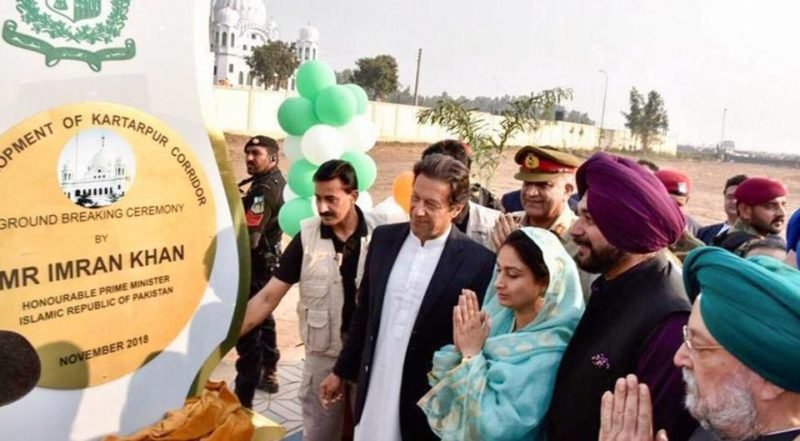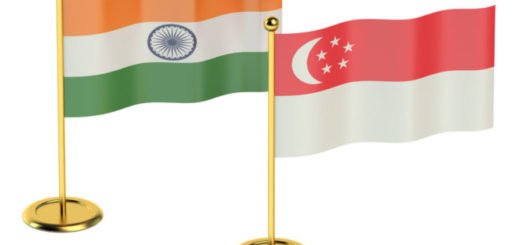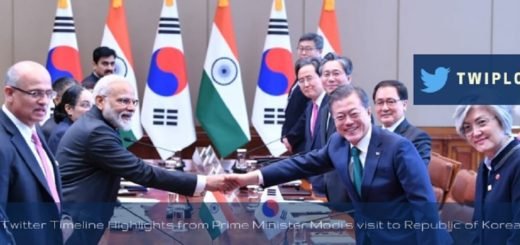Kartarpur Sahib Corridor: What India needs to prioritise

Talks around the Kartarpur Sahib Corridor has emerged after the meeting that was held on 14th March 2019 at Attari. The foundations of the project which dates almost 20 years back, has a very significant position shared by the neighbouring countries of India and Pakistan, both religiously and spiritually. Kartarpur holds an important emotion for Sikhs across the globe as it is the final resting place of Guru Nanak Dev, the founder of the Sikh community. The corridor aims to connect the two shrines, Gurudwara Darbar Sahib Kartarpur in Punjab, Pakistan with Dera Baba Nanak Sahib in Punjab, India. The history associated with the place has a vital position within the Sikh community and pilgrims on the Indian side have quite been alienated from the ‘religious’ soil post-partition. The Indian pilgrims have to take a bus all the way up to Lahore, although the Gurudwara can be seen from across the border. The issue of constructing the corridor is not new, but the never-ending tensions between the two countries posed as an obstacle to take the talk on it forward. The plans initially began after the 1999 Bus Diplomacy and the demand for visa-free travel to the shrine were placed by the Indians repeatedly. Even after seeking help from Sikhs abroad, the foundation stone was finally laid last year on 26th November 2018.
The meeting conducted on 14th March stands crucial as it also marks the first diplomatic meet after the entire Pulwama attack scenario. Religiosity has been a very driving force in India since time immemorial for it not only carries the baggage of emotions but political motifs as well. Kartarpur Corridor has been decided to open on the occasion of 550th Birth Anniversary of Guru Nanak Dev, a commitment on part of the Pakistani government. Details of the meeting also mentioned the number of pilgrims that must be allowed on a daily basis and the cost of the whole journey up to the shrine must be minimized. The Ministry of External Affairs released in a press statement that India wishes some 5000 pilgrims per day, the number of which could be extended to 10000 on special occasions. India stands firm on the whole visa-free policy to Kartarpur as a lot of pilgrims would want to travel on foot, so the process of official documentation must be avoided to make their holy journey absolutely ‘smooth’ and ‘convenient’. The Indian Government has also stressed on the fact that both Indian nationals and people of Indian Origin must be allowed as a counter to the Pakistani government’s appeal of only allowing people holding Indian Passport, side-lining the Overseas Citizens of India. Pakistan is planning to introduce a permit system which stands totally contrasting to the country’s previous statements regarding the project. The delegation representing India requested the Pakistani government to understand the overall sentiments that the project carries along with a speedy response to the proposals made for the project.
However, the whole Kartarpur Corridor construction isn’t as simple as it might appear to be. Punjab Chief Minister Amarinder Singh remarked that it would be foolish to completely trust Pakistan, as the whole event seems as an exploitation of the Sikh sentiments. He said “Pakistan is doing with a different intent, which is not at all aimed at promoting peace. India’s agenda is religious, but theirs is totally disruptive.” Moreover, it would be absolutely unwise to undermine the security issues especially after reviewing the current tensions between India and Pakistan, post-Pulwama attack.
Another Pro-Khalistan Agenda?
These remarks highlight that somewhere India is aware of the Pro Khalistan movement which Pakistan might use for propagating the whole agenda of Referendum 2020. The agenda for a separate state is being undertaken by a group ‘foreign’ Sikhs under the name ‘Sikhs for Justice’ and they intend to manipulate the opinion of Sikhs living across 20 countries all over the world invoking their sentiments on ‘Punjabi identity’. The group is US based which have recently sought Pakistan’s support for its controversial campaign. Intelligence have claimed ISI’s role in brainwashing pilgrims to comply with the campaign, taking the secessionist movement forward. The SFJ will also be registering the votes exactly on the day the Kartarpur Sahib Corridor is to open, i.e on the 550th Birth Anniversary of Guru Nanak Dev.
India fears that the call for another Khalistan movement which has already been propagated in the United Kingdom, United States and Canada, despite India communicating the pressing need to stop this movement. However, the countries have condemned this action but unable to curb these by quoting their constitutional provision of absolute freedom of speech and expression.
Intelligence fears that ISI would try to penetrate deep within the pilgrims visiting the holy place to provoke sentiments regarding a separate state for them. Reports have surfaced with crucial evidence that Pakistan’s Shiromani Gurudwara Prabandhak Committee has been campaigning internally for liberating their community and are also the big promoters of the Kartarpur Sahib Corridor. SFJ’s leader has also directly called upon Pakistani Prime Minister’s help to politically support the secessionist movement.
The Kartarpur Sahib Corridor includes sentimental baggage of Sikhs living across the Indian subcontinent. The blueprint of the construction has already been discussed, however, considering the political developments engulfing the construction, India cannot at any cost undermine the threats that have emerged. Even for the pro-Khalistan movement, India needs to better understand the bigger horizon and decode it immediately. Security issues of the pilgrims and the country at large is also another agenda which needs precision in terms of its evaluation. The next meeting around the Kartarpur Sahib Corridor which will take place on 2nd April 2019 at Wagah as updated by the MEA, concerns regarding the project needs mutual dialogue and deliberation.


















